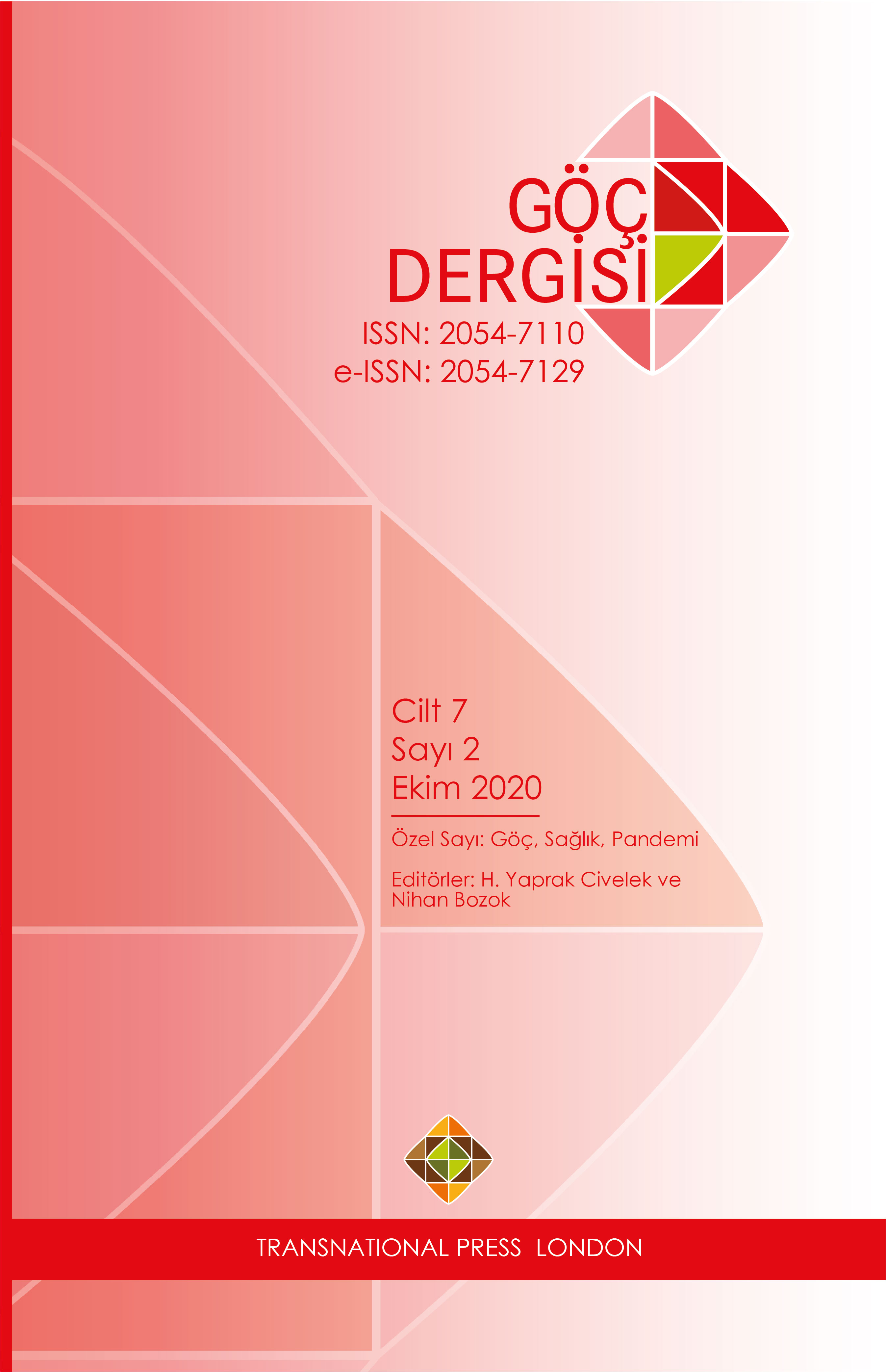Dış Göç Romanlarında Temel İzlekler
DOI:
https://doi.org/10.33182/gd.v7i2.695Anahtar Kelimeler:
Dış Göç, Göcmen Edebiyatı, Türk RomanıÖzet
Bu çalışmada, 1960-1990 yılları arasında yayınlanan ve Avrupa’ya işçi göçünü konu edinen romanlar izleksel bağlamda incelenmiştir. Romanlardaki temel izlekler çerçevesinde göç süreci irdelenmiş, inceleme, göçmenlerin tanımlanmasında ve adlandırılmasında kullanılan Gastarbeiter (konuk işçi) Auslander (yabancı) kavramları ve Almanlar tarafından Türk kimliğine atfedilen çağrışımlar üzerinden yürütülmüştür. Göçmenlere yönelik politikalarda ve yaklaşımlarda onların nasıl tanımlandığının etkili olduğuna ve yazınsal süreçte de bu politika ve yaklaşımların belirleyici olduğu savından hareket edilmiştir. Bu noktada adlandırmaların, tanımlamaların göç olayı çerçevesinde biz ve öteki ilişkisi üzerindeki etkisine odaklanılmış; toplum ve yazın ilişkisi temelinde incelenen romanlar üzerinden göç ve göçmenlik meselesine dair çıkarımlar yapılmıştır. Bunlar arasında, ayrımcılık, kötü çalışma koşulları, hak ihlalleri, ırkçılık ve ötekileştirme gibi başat sorunların bu eserlerde merkezi konumda olduğu tespit edilmiştir. Böylece çalışmanın amacı olan göç yazınını oluşturan temel izleklere ulaşılmış; sosyolojik ve tarihsel gerçekliğin yazınsal gerçekliğe aktarılmasında etkili olan unsurlar ön plana çıkarılmıştır.
ABSTRACT IN ENGLISH Main Patterns in Migration NovelsIn this study, the novels published between 1960-1990 and dealing with the migration of workers to Europe were examined in a contextual context. The process of immigration has been examined within the framework of the basic lines in the novels, through the concepts of Gastarbeiter (guest worker), Auslander (foreigner) used in the identification and naming of immigrants and connotations attributed to Turkish identity was conducted. The argument is that how they are defined is effective in policies and approaches towards immigrants and that these policies and approaches are determinative in the literary process. At this point, the effect of naming definitions on us and the other relationship within the framework of migration has been focused; there are inferences about the issue of migration and immigration through the novels examined on the basis of the relationship between society and literature. Among these, it has been determined that dominant problems such as discrimination, poor working violations, racism and marginalization are central to these works. Thus, the basic themes that constitute the migration literature, which is the aim of the study have been reached and the factors that are effective in transferring the sociological and historical reality have been brought the fore.







